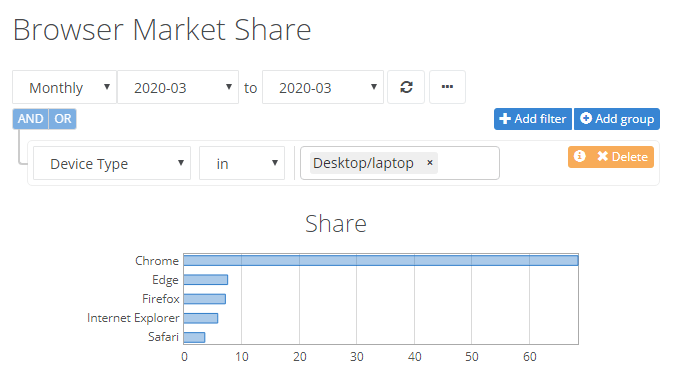Before the web became the place where people hang out digitally, Microsoft was already in the first ever browser war.
At that time, its Internet Explorer web browser, which was shipped with Windows 95 Plus!, was at war with Netscape Navigator. Because Microsoft bundled the web browser with every of copy of Windows, the company quickly get a lot of users for the browser.
Microsoft was already a big company, and competing with Netscape simply put the latter in a difficult position.
Netscape's total revenue never exceeded the income generated by Microsoft's funds that were readily available for use.
Internet Explorer became the dominant browser, attaining a peak of about 96% of the web browser usage share during 2001. The browser war ended with Internet Explorer having no remaining serious competition, until Google, Apple, Mozilla and Opera showed up.
Read: The Brief History Of Microsoft Internet Explorer And Google Chrome: A War For Monopoly

With those around, Microsoft started to lose its grip in the market. Internet Explorer was then seen as a product of the yesteryear, something that was simply outdated and not reliable.
And that until Microsoft launched Edge browser. This browser was then tweaked to use Chromium instead of EdgeHTML.
Fast forward to early 2019, Microsoft Edge was gaining traction, but not in the position to compete against Mozilla Firefox in terms of market share. But in 2020, things are changing.
According to the NetMarketShare March 2020 report, Microsoft Edge browser has surpassed Firefox with a 7.59% market share.
Notably, Firefox stands at the third position with its 7.19% share. This is a drop from 7.57% a month before, meaning that Firefox lost 0.38% of its market share.
Edge gained a mere 0.21% in March. This isn't a massive uptick, but still upward movement nonetheless. By securing the second spot, this is certainly a major milestone for Microsoft, considering that its non-Chromium Edge was dwindling away at the bottom of the browser league before the company revamped it.
On the list, Google Chrome, the most popular browser for desktop users remains far ahead, with a market share close to the 70% mark.
Internet Explorer is in fourth position with 5.87%, and Safari close behind with 3.62%.